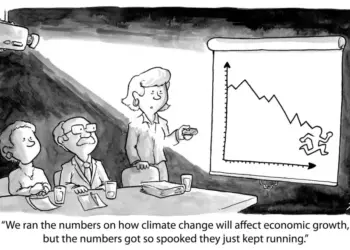Since 1960, the world has spent over four trillion dollars in aid. Much of that money has gone to Africa – a continent that is said to be “cursed” with an abundance of resources. The stereotypical notions of Africa that come to mind are those of starving children, brutal civil wars and rampant corruption. While this does exist in Africa, we tend to forget all the wonderful innovation and entrepreneurship that is going on.
The general notion that Africa is in ruins and that the people need saving has led to a large aid culture. Millions of dollars of aid are poured into Africa each year, but it is not clear that it has made a real change. So does Africa really need more aid, or does it need a stronger private sector and export market?
We cannot let go of aid
In her brilliant TED Talk, Ngozi Okonjo-Iweala, the former Minister of Finance of Nigeria, speaks of the importance of aid and how Africa should not be ashamed to take it. She gives the examples of Spain and Ireland, which received billions in loans from the EU. They used the money to improve their infrastructure and jump-start their economies after their slump; now Ireland has many new opportunities that are attracting workers from across Europe. She says that nations in Africa should do the same. Instead of being ashamed of receiving aid from the developed world, they should make use of it and build the infrastructure and institutions that are desperately needed to move forward.
 In the photo: Infrastructure development in Nigeria. Photo credit: unsplash.com/Oshamah Abubakar
In the photo: Infrastructure development in Nigeria. Photo credit: unsplash.com/Oshamah Abubakar
Africa still falls prey to many humanitarian disasters. Therefore, there is still a need to have aid structures in place, to be able to effectively respond to natural disasters and humanitarian crises. But for other issues, we need to have a much better idea of the interests of the local communities and regions throughout Africa. According to Ms. Okonjo-Iweala, in Nigeria, citizens were polled and said the most prominent issue was a lack of jobs. There is a huge unemployed youth population in Nigeria, and the aid money that a government receives should focus not only on humanitarian disasters but on issues the citizens find most pressing; the people need to have a say in where the money is going.
Related articles: “RESILIENCE-BUILDING: A PARADIGM CHANGE IN DEVELOPMENT AID“
“SDG 9: UNLEASHING INNOVATION“
Ms. Okonjo-Iweala emphasizes that “aid is a facilitator, not a problem-solver.” Aid money put to good use is what will build the infrastructure that is needed as a base for further development and investment to be possible. Aid needs to be used as a catalyst for change.
Expanding the conversation
Jaqueline Novogratz, author of The Blue Sweater, also gave a great TED Talk on a similar topic. After living in Rwanda for many years and helping women there set up their own microenterprises, she said the biggest message is one of engagement. She strongly believes that people do not want handouts; they want to solve their own problems. They can make more informed decisions, as they are the ones immersed in a certain situation and know of the best options available to them. Engaging the people in the process is not just a matter of effectiveness – it is also a matter of dignity.
 In the photo: Involving African voices in decisions. Photo credit: unsplash.com/Avel Chuklanov
In the photo: Involving African voices in decisions. Photo credit: unsplash.com/Avel Chuklanov
Here is where Ms. Novogratz and Ms. Okonjo-Iweala’s views coincide: Africans need to be part of the conversation. There is a huge amount of money that aid organizations can provide, but there is not much knowledge on what local communities in Africa want and need. For example, so much money is poured into preventing female genital mutilation (FGM) in Kenya, yet when anthropologists on the ground asked what the main social issues that women faced were, FGM was not even near the top of the list. While tackling FGM is important, this example also shows that we should be prioritizing aid towards issues that really matter to the people.
Private investment can save the day
Renowned Zambian economist Dambisa Moyo wrote an excellent article in the Wall Street Journal called Why Foreign Aid is Hurting Africa. She is a strong proponent for turning to the private sector and foreign direct investment to be able to move away from depending on foreign aid. She argues that aid has created a cycle of helplessness and is preventing sustainable economic growth. It cuts into local markets and creates a perpetual dependence.
For a full mindmap behind this article with articles, videos, and documents see #aid
She writes that African nations have to pay about $20 billion in debt repayments each year, meaning that we need to remember that aid does not come for free. These huge burdens hurt governments, while dropping the debts lets them get away with irresponsible behaviour. But one of the biggest obstacles to the effectiveness of aid is corruption. Ms. Moyo writes: “With few or no strings attached, it has been all too easy for the funds to be used for anything, save the developmental purpose for which they were intended.” Instead, the money often gets sucked into the bureaucratic machines and into the pockets of fraudulent politicians.
With few or no strings attached, it has been all too easy for the funds to be used for anything, save the developmental purpose for which they were intended.
She then turns to the political implications of aid culture: “A constant stream of ‘free’ money is a perfect way to keep an inefficient or simply bad government in power. As aid flows in, there is nothing more for the government to do – it doesn’t need to raise taxes, and as long as it pays the army, it doesn’t have to take account of its disgruntled citizens.” These governments need to raise capital themselves, without relying on foreign aid. This could be achieved through private investment and an established bond market to internally fund African entrepreneurship.
Encouraging foreign direct investment, especially from China – which has much interest in African natural resources – would bring money into projects that will build the African economy sustainably and bring jobs to the people. While there are caveats to such investment, as many of the benefits go to the investors and locals are often given only low-level jobs, it still builds systems that boost growth. These African nations need to have a strong private sector in order to build strong financial institutions that enable access to credit and thus entrepreneurial spirit.
Steps that can be taken
While there is still definitely a need for aid, there are key changes needed in the aid to benefit long-term the people for whom it is intended. Firstly, there needs to be more concrete knowledge on the most pressing issues facing the most challenged communities in Africa, and focus monetary resources on those. Secondly, there needs to be greater local representation in determining resource allocation. They should be directing where the aid goes, as they know best what their people need. And lastly, there should be more efforts at solidifying the private sector, to promote local business and inspire entrepreneurship.
Aid to nations in Africa has an indirect and adverse effect to the same communities it means to support. If these communities were more equipped with the right tools and the right environment, they would have more opportunities to bring about the change that they need.
Recommended reading: “WHY AID FAILS“
_ _











